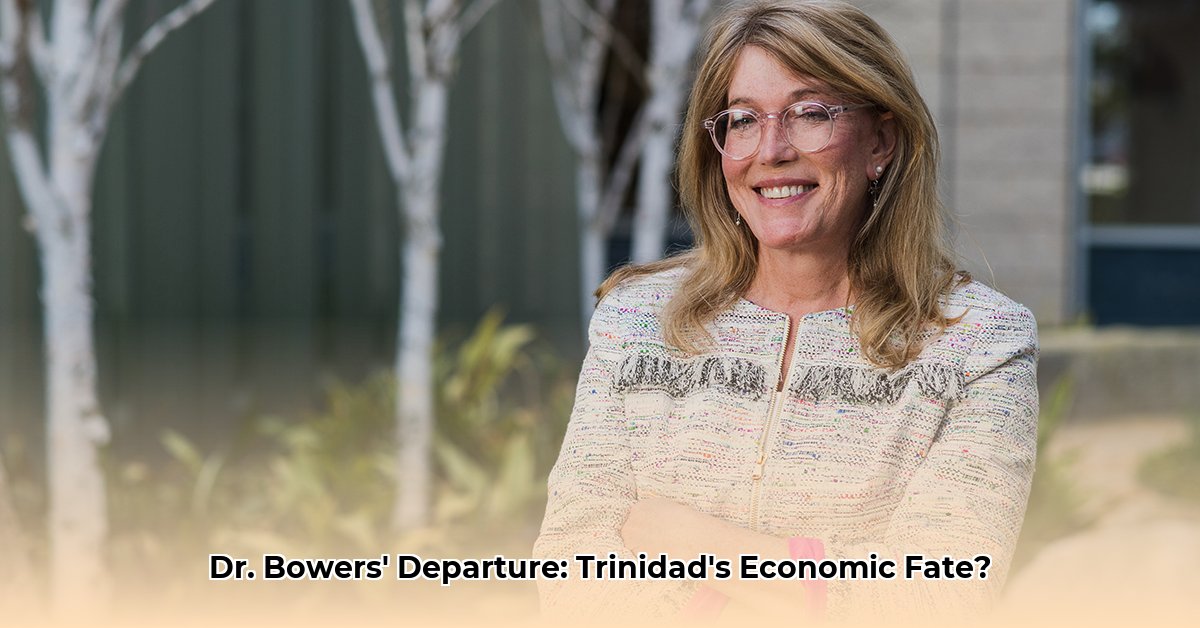
Marci Bowers' Departure: A Ripple Effect on Trinidad's Economy
The relocation of Dr. Marci Bowers, a renowned gender-affirming surgeon, from Trinidad, Colorado, sent shockwaves through the town’s economy. This isn't a story solely about Dr. Bowers' net worth—a figure that remains undisclosed—but rather a narrative of economic disruption, community resilience, and the complex interplay between specialized healthcare and small-town survival. The departure sparked a debate on the true extent of her economic influence and highlighted the often-overlooked vulnerabilities of rural economies reliant on niche industries.
The immediate consequence was palpable. Businesses that thrived on the influx of Dr. Bowers' patients—restaurants, hotels, and even local pharmacies—reported a significant decline in revenue. The closure of the Morning After Guest House stands as a stark symbol of this economic downturn. But quantifying the precise financial impact remains elusive. Mt. San Rafael Hospital estimated Dr. Bowers contributed only 5% to its overall revenue, a figure sharply contested by Dr. Bowers herself, suggesting a much higher impact. This discrepancy underscores the urgent need for further investigation, perhaps by an independent economic analysis firm, to fully grasp the magnitude of her contribution. How can we accurately assess the true ripple effect of her practice on the local economy when such crucial data points diverge so significantly?
Beyond the immediate financial implications, Dr. Bowers’ departure had profound social and cultural consequences. Trinidad, shaped by the legacy of both Dr. Bowers and her predecessor, Dr. Stanley Biber, had cultivated a unique reputation as a center for gender-affirming care. This identity, unexpected yet integral to the town’s image, now faces a period of uncertain transformation. Will Trinidad successfully rebrand itself, or will this pivotal aspect of its history fade into obscurity? The community grapples with this pivotal question, facing the challenge of defining its post-Bowers identity.
Trinidad's Economic Diversification: Navigating Uncertainty
The future of Trinidad's economy hinges on its capacity for diversification. The reopening of the New Elk coal mine offers a potential boost to employment. However, the coal industry's inherent volatility presents substantial risks, casting doubt on its long-term viability. Economists caution against relying solely on this historically fluctuating resource for sustained economic growth. Similarly, initiatives such as the development of the Cougar Canyon Golf Course face uncertainties regarding their capacity to generate meaningful economic recovery.
“The reliance on a single industry, even one as significant as Dr. Bowers’ practice, leaves a community vulnerable,” explains Dr. Eleanor Vance, Professor of Economics at the University of Colorado Boulder. “Diversification is key to long-term economic stability, but it requires a proactive and strategic approach.” This sentiment is echoed by local officials actively pursuing alternative strategies, such as investing in tourism infrastructure, hoping to attract a wider range of visitors and reduce the reliance on niche medical services.
Assessing the Risks: A Path to Sustainable Growth
A comprehensive risk assessment is crucial to navigate the challenges facing Trinidad. The following table illustrates key risks and potential mitigation strategies:
| Risk Factor | Probability | Impact | Mitigation Strategy |
|---|---|---|---|
| Coal Mine Instability | Medium | High | Diversify economy; attract diverse industries; invest in sustainable tourism and renewable energy sources. |
| Economic Diversification Failure | High | Very High | Develop a comprehensive economic plan; seek expert consultation; secure government support; attract tech companies or remote workers. |
| Tourism Revenue Decline | Medium | Medium | Implement targeted marketing campaigns; develop unique tourist attractions; improve infrastructure; focus on authentic local experiences. |
| Negative Public Perception | Low | Medium | Foster community engagement; implement a strategic rebranding initiative; ensure transparent communication; actively highlight positive developments. |
The uncertainty surrounding Dr. Bowers’ exact economic influence underscores the need for a proactive and diversified approach to economic development. Trinidad’s future depends not only on recovering from the immediate impact of her departure, but also on building a more resilient and adaptable economic ecosystem.
A Legacy of Care: Rebuilding and Reimagining Trinidad's Future
The story of Dr. Marci Bowers' departure from Trinidad is more than just a tale of economic disruption. It's a case study in the interconnectedness of healthcare, local economies, and community identity. It highlights the often-overlooked vulnerabilities of rural communities dependent on specialized healthcare services and underscores the importance of comprehensive economic planning, transparency, and community engagement in fostering sustainable economic growth. The path forward for Trinidad requires a delicate balance: honoring the legacy of Dr. Bowers and Dr. Biber while simultaneously charting a new course towards a more diversified and resilient future. The road ahead will be challenging, but the town's resilience and strategic planning will ultimately determine its success.